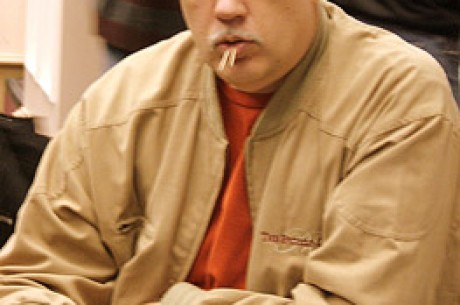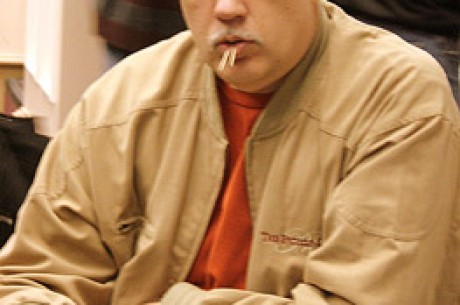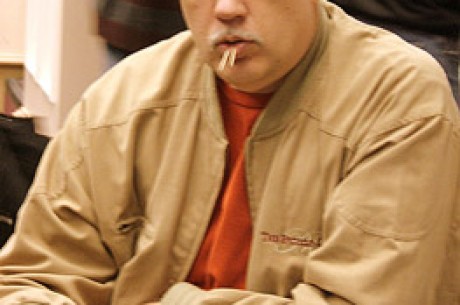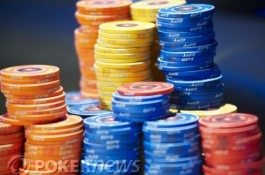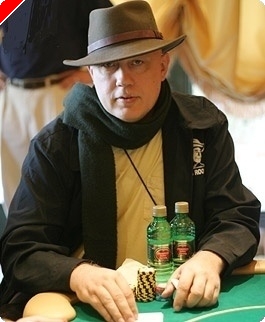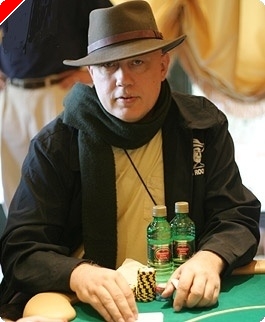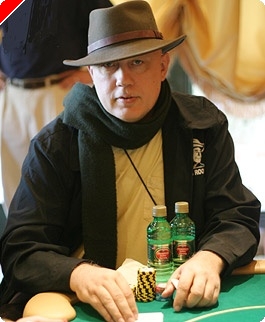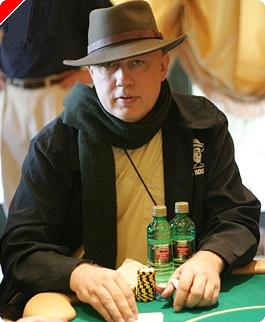Inside the Poker Tour - 27
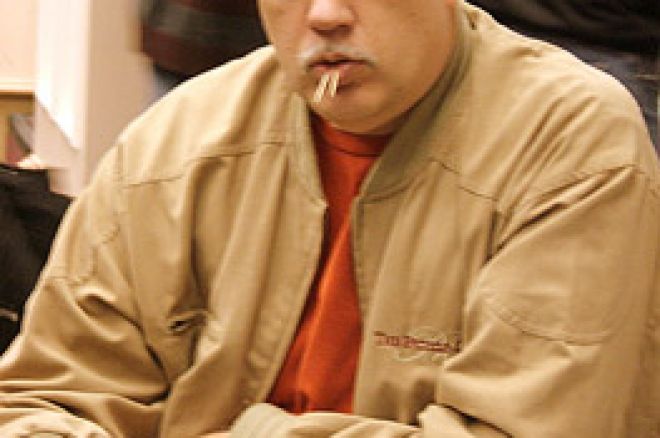
One thing that has to amaze all the old-timers is the rush to dispense the wisdom that once had to be gathered over time by sitting at the table and playing the game and learning a bit about each situation when the hands were played out and actually turned over. It is possible to ask what each player holds in a called pot on the river, of course, but the practical truth is that you would quickly become a pariah in any game if you were to continue to do so. Many players learning the game today think that it is okay to ask, but the old school players just hate it and often voice their displeasure. The history of allowing this is that it allegedly avoids collusion and sandwiching of new players in the game, but the reality is that it has almost no practical usefulness.
As to who is spilling the beans I would never name names would I? Well, hmmmm, maybe.
The first tome out that incurred the wrath of other players was Super System by Doyle Brunson and the truth from my viewpoint is that it is hundreds of pages of drivel with about one insight of any value. I am amongst the hundreds of players that ponied up the 50 dollars that it cost at the time hoping to get more than a hint of great secrets. From my own perspective I was a sucker and thought the first books of any value that I bought were by David Sklansky. Tom McEvoy's tournament poker book was another nugget when it came out [sadly he has written little else that I can recommend]. Super System II came out more recently and I think it is only marginally better than Super System I, if you like advice in this genre I suggest you buy 'Ace on the River' by Greenstein which I think offers more useful tidbits.
As to pertinent advice on playing no-limit Texas holdem only the books by Dan Harrington have some actual value, even though they are much more appropriate for no-limit tournament players than cash game players. I have been spoken to by professionals that are disgruntled and actively unhappy about what he reveals in these books. Unhh, well boys, you will be equally unhappy with me when my books and CD's come out, starting next year, although the expert part won't be out for about two more years.
Multi-media soon-to-be mogul, Daniel Negreanu is famous for sharing his thought processes, even at the moment, and even with his opponent. Interesting! He tends to explain what is going on in even more details in his columns.
Talking to your opponent to gather information has long been accepted but there are some restrictions that have arisen on the tournament circuit. You can talk about your hand but you cannot tell the truth! Wow! So skillful prevarication can lead your opponent to a false conclusion, but if you tell the truth and the hand is played out then you will be, or should be, given a penalty. Some pros use this knowledge to their advantage and when I speak up [I am usually not in the hand when this happens] and advise the amateur to not answer the question about what they hold on the basis that they can only get a penalty if they tell the truth the pro typically unleashes his wrath on me.
Which leads to the next interesting group of questions, "if you are at the table should you speak up about an incorrectly awarded pot in a tournament? In a cash game? In a tournament, the breaking of a rule? An ethical violation?" The general guideline breaks down as 'no you should not speak up in a cash game, unless you are in the pot, but in a tournament you have an obligation to speak up' because what happens in each situation has a consequence for every player at every table that has entered the event. In cash games each player is supposed to protect his own hand and result.
Internet players can play twice as many hands in each game they play and so if they play four screens they are getting to see eight times as many hands [and on every one they will have the option to see what their opponent held if the hand goes to the river] so when you add the other learning tools available they can become good players in a matter of months instead of the decades that it once took. That alone is interesting, but on top of that some of them have chosen to share their wisdom in publications, mostly magazines, and so further altered the way in which the game of poker is played.
In particular I am talking about Thomas Keller and Scott Fischman as they know a great deal more than their years would indicate and sometimes share that knowledge.
It does not surprise me when people like Howard Lederer and Chris Ferguson explain what is going on but I was shocked to see a revealing article recently by John Juanda. I have always thought that John was part of the group of great players that would not speak out, the likes of Eric Seidel, Alan Cunningham, and Phil Ivey.
Now in this line of thought I am not questioning the materials put out for beginners, such as Hellmuth's books and tapes. Nor the tidbit and tale type of book by such as Cloutier and Baldwin. Nor the math and thought type of book [which is all the intermediate and advanced player had available until recently] by Sklansky and Malmuth. I am speaking to the actual delivering of and revealing professional "secrets" that some of the better players are willing to talk about. They are often buried in an avalanche of material that covers the shelves of our stores at the moment, purporting to better our games painlessly, but the real protection, I believe, comes from the fact that until you are ready to hear advanced strategies one has a difficult time discerning what is food and what is waste.
We travel back in time to a tournament in Reno, Nevada. It is 1988 and there is one barnburner of a side game going, it is pot-limit and the blinds are 2-3-5 with the 2 going on the button. Player one limps in, player two limps, our hero limps third [already a suspect play with AdAh], two more players limp and now the cutoff raises it to 30, the button and two blinds call as well as the first two limpers and our hero calls once again??? Well if I thought it a weak play to call the first time my criticism is much larger now. You just picked up aces, you are lucky to have them and your actions should be taken with the idea of narrowing the field, not taking a cheap flop with six or more opponents! Ah, but wait, the player to the right of the cutoff now moves all-in for 140, the cutoff and big blind call and our AA hero calls once more, with all other players folding and the four remaining taking the flop, which comes Ks10s5h. The pot is checked to the cutoff who moves all-in, followed by the big blind moving all-in and our hero now calls with his aces, which are by now not only a mere shadow of their once mighty self. He could easily be drawing almost completely dead and has put in his last 210 dollars without even holding the ace of spades! I am the only player at the table that did not put a chip into this pot and am watching with great interest as the turn comes a 2d and the river an ace of clubs! The three hands I see are the winning AhAd, the 5c5d, and the kc-10c! Talk about putting a camel through the eye of a needle! Proving that this hand was no fluke the winner went on to win the world championship of poker in 1989.
So that only leaves my parting advice...play good...and get lucky!
[I]Ed note: [URL="/party-poker"]Party Poker[/URL] have multiple tables available at every limit, 24 hours a day.[/I]

